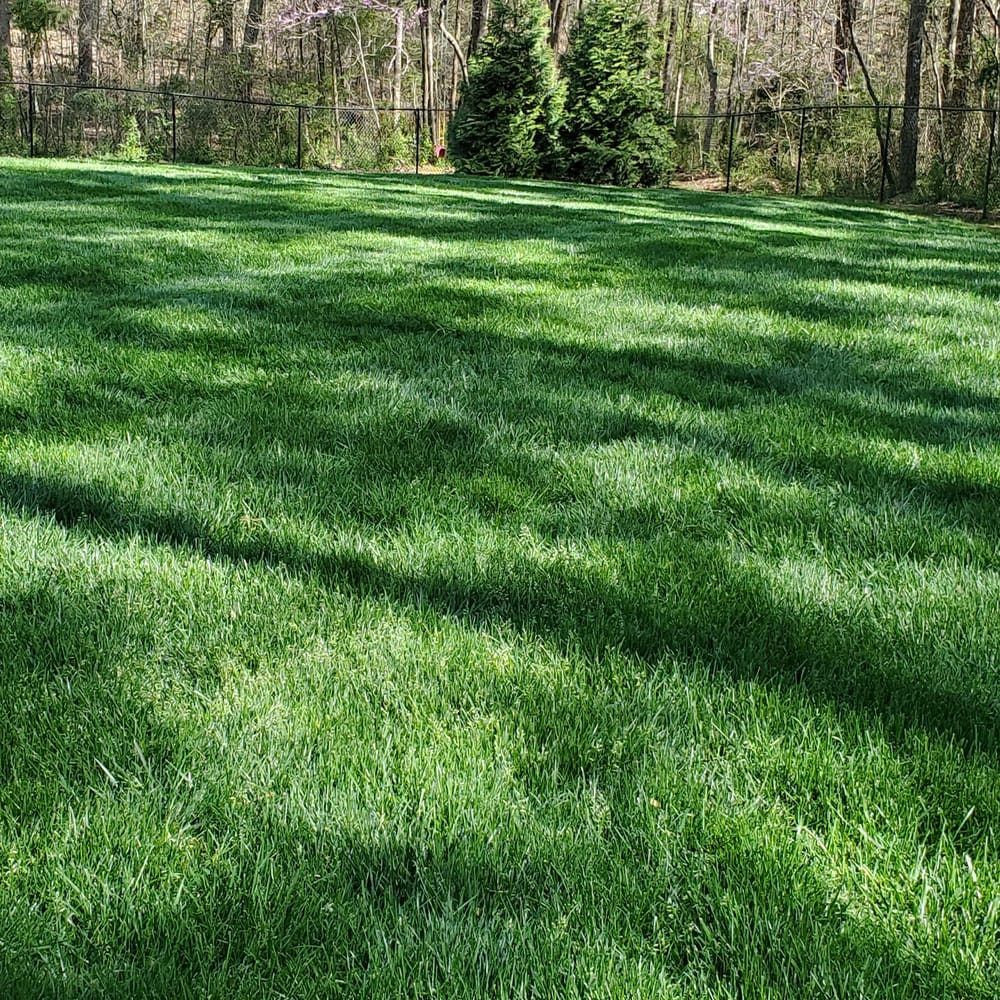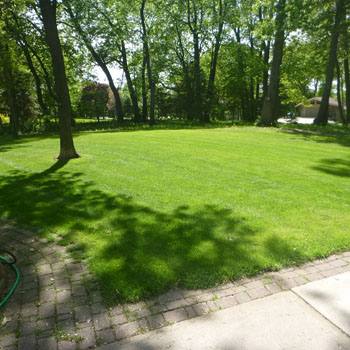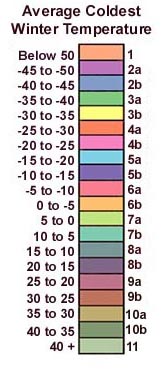
Kentucky Bluegrass - Midnight
- Dark Green Color
- Lawns
- Cost Efficient

Grasses used in Connecticut generally consist of bluegrass, ryegrass, fine fescue, or mixtures of these grasses. Turf type fescue is also used where drought tolerance is the primary focus and colonial bentgrass is often used in coastal environments. Some people are using zoysia grass in CT. This is a warm season grass that will go dormant and turn brown during all cold months (approximately 6 months) in CT.
Cool-Season Grasses:
Kentucky bluegrass is a high quality, sod forming, cool season, shallow-rooted grass with excellent appearance and recuperative potential. It may require frequent irrigation, tends to form thatch and is somewhat disease and insect prone. However, it is extremely cold tolerant and one of the most beautiful grasses there is. It also spreads by rhizomes which helps to repair itself and makes it fairly wear tolerant. Kentucky bluegrass is not the only cool season grass used in Connecticut. Fescue and ryegrass are two other commonly used cool season grasses.
Perennial ryegrasses are bunching cool season grasses that are compatible in appearance with bluegrass, do not form thatch, have good heat tolerance and may be drought resistant. They tend to be disease prone and offer poor freezing tolerance if flooded or exposed to wind. Perennial ryegrasses is designed for full sun areas, but will tolerate some shade. Ryegrass is bred to give a pleasing dark green color, with a fine texture and excellent mowing qualities. Is also a very good choice for blends with Kentucky Bluegrass and Fine Fescue.
Fine fescues are divided into Chewing fescues, Hard fescues, Red fescues and Sheep fescues. For our purposes they are all grouped together. They are bunching cool season grasses, have a fine leaf texture, offer good shade and cold tolerance, and will adapt to poor soil conditions and fertility.
Tall fescues are bunching, cool season, deep-rooted grasses that may be more drought resistant. They have few insect or disease problems, are slow to form thatch, and do well in shade. They are slow to recover from divoting, can become clumpy if not carefully established.
| Click Name To View Grass Seed Choice | Type | Applications | |
|---|---|---|---|
| Cool Season Mix - Showtime |
|
Cool Season |
Lawns - Full Sun to Moderate Shade Rye, Kentucky Bluegrass, Fine Fescue Mix |
| Cool Season Mix - Garland |
|
Cool Season |
Lawns - Full Sun to Moderate Shade Rye, Fine Fescue Mix |
| Fescue/Bluegrass Mix - Combat Extreme North |
|
Cool Season | Lawns - Wear Tolerant |
| Fescue Blend - Combat Extreme Transition |
|
Cool Season | Lawns - Wear Tolerant |
| Fine Fescue Blend - Legacy |
|
Cool Season | Lawns - Full Sun To Moderate Shade |
| Kentucky Bluegrass - Bluegrass Supreme |
|
Cool Season | Lawns - Golf Gourses - Full Sun |
| Kentucky Bluegrass - Midnight |
|
Cool Season | Lawns - Golf Courses - Full Sun |
| OSP Ryegrass |
|
Cool Season | Lawns - Golf Courses - Southern Winter Overseed |
| Shade Grass - Poa Supina Mix |
|
Cool Season | Lawns - Full Sun - Deep Shade - Best Shade Grass |


Below is the USDA Zone Map for Connecticut so you can determine which zone you reside in. Below that are our picks for your state which will do best in your area. Next on this page are tables which list various grasses and their characteristics so you can compare before you decide on your purchase. Click on the product name (ie. Midnight) for more information about that grass and to make your purchase.
| USDA Zone Map For Connecticut | |
|---|---|
 |
 |
| Compare Various Grasses For Their Characteristics | ||||||||
|---|---|---|---|---|---|---|---|---|
| Cool Season Grasses |
Leaf Texture |
Establish Rate |
Nitrogen Use |
Water Use |
Drought Tolerance |
Salinity Tolerance |
Shade Tolerance |
|
| Bentgrass - Creeping | Fine | Moderate to Fast |
Low to Moderate |
High | Poor to Moderate |
High | Poor to Moderate |
|
| Bentgrass - Colonial | Fine | Moderate to Fast |
Low | Moderate | Poor to Moderate |
Moderate | Moderate | |
| Bluegrass - Kentucky | Moderate to Fine |
Slow | Moderate to High |
Moderate to High |
Good | Moderate | Poor | |
| Bluegrass - Rough | Moderate to Fine |
Slow | Moderate to High |
Moderate to High |
Poor | Moderate | Excellent | |
| Fescue - Chewings | Fine | Moderate | Moderate to Low |
Moderate | Good to Excellent |
Low | Excellent | |
| Fescue - Hard | Fine | Slow to Moderate |
Low to Very Low |
Moderate | Excellent | Low to Moderate |
Excellent | |
| Fescue - Creeping | Fine | Moderate | Low to Moderate |
Moderate | Good | Low | Excellent | |
| Fescue - Turf Type | Moderate to Coarse |
Moderate | Moderate to High |
Low to Moderate |
Excellent | Low | Good to Excellent |
|
| Ryegrass - Perennial | Fine to Moderate |
Very Fast | Moderate to High |
Moderate to High |
Good | Poor to Moderate |
Poor to Moderate |
|
| Compare Various Grasses For Their Characteristics - Continued | ||||||||
|---|---|---|---|---|---|---|---|---|
| Cool Season Grasses |
Fertility Needs |
Wear Resistance |
Mowing Height |
Cold Tolerance |
Acid Soil Tolerance |
Thatching Tendency |
Heat Tolerance |
|
| Bentgrass - Creeping | High | Low | Low | Low | Medium to High |
High | High | |
| Bentgrass - Colonial | High | Low | Low | Low | Medium to High |
High | High | |
| Bluegrass - Kentucky | Medium | Medium to High |
Medium | High | Medium | Medium | Medium | |
| Bluegrass - Rough | Medium | Medium | Medium | High | Medium | Medium | Medium | |
| Fescue - Chewings | Low | Low | Medium | Medium to High |
Medium to High |
Low to Medium |
Low to Medium |
|
| Fescue - Hard | Low | Low | Medium | Medium to High |
Medium to High |
Low to Medium |
Low to Medium |
|
| Fescue - Creeping | Low | Low | Medium | High | Medium to High |
Low to Medium |
Low to Medium |
|
| Fescue - Turf Type | Low to Medium |
Medium to High |
Medium to High |
Medium | High | Low | High | |
| Ryegrass - Perennial | Medium | High | Low to Medium |
Medium | Medium | Low | Medium to High |
|